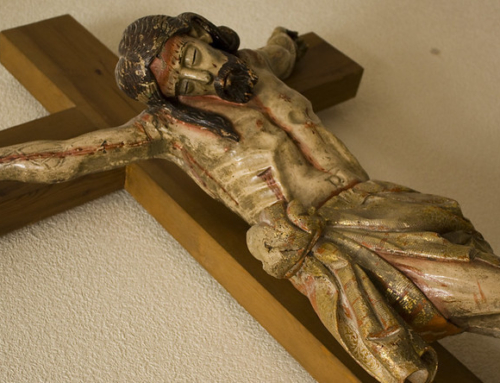It’s easy to color another person’s character. We paint a picture of someone in our group of friends, and we don’t let him change much from the mold we’ve given him. “Fred’s always been that way.” Changing his character now would change other things, and those things don’t need changing. It’s simply more comfortable to deal with our image of someone rather than who he really is.
But chances are we don’t stereotype others just to have trouble seeing who they are. We often are looking to hide from ourselves. In any relationship, being honest with someone means that we have to be first honest about who we are. And this can be as uncomfortable as it is difficult. If we let others show their true colors, they might expect us to do the same. And we might be afraid of seeing what’s there when we do.
Friends are like mirrors. Good ones show you who you are. Those having trouble being honest with their friends may also have trouble maintaining a good self-image. If we blur or tarnish the mirrors that show us who we are, then we fail to see the dignity and worth we have. We can no longer see our genuine self.
This is what our sins do. Sin tarnishes and smears the mirrors that show us how we see ourselves. If we’re afraid of what we’ve done in the past, it seems easy enough to forget that we’ve been hurt. It’s tempting to say, “I don’t want to admit that my sins hurt me.” But we’re also afraid that nothing can be done to change us once we’ve been hurt. The damage is done and it isn’t getting better. We might be saying, “Not even God can get me out of where I am right now.”
There are few things more frightening than taking a good hard look at yourself and telling what you see. Earlier this year, I asked a college student about what it means to go to confession. She told me that “the reason I don’t go that frequently is because I’m afraid to face a lot of the things I would have to say. It’s much easier to just not think about them.” This fear makes us cover over or touch up what we don’t want to see, and makes us hope that no one will ask to see behind what we’ve put together. This is the option we commonly choose over going to confession.
But there’s one big problem with this fear: it doesn’t change us. Fear freezes us even when we need to take drastic steps in another direction. It stifles, obstructs, and hinders anything that modifies our current state of affairs. Fear narrows the mind to rule out other options, so that even a genuine desire for repentance can be muffled out by a fear of change.
But there’s one kind of change we do like to hear about: mercy. Mercy requires two things: someone loving and powerful enough to help, and another person in need of that help. God, being perfect love in himself (1 Jn 4:8), fills the first role perfectly. But mercy also implies admitting that we need help. It implies that we want to change. Accepting God’s mercy means that we also accept needing it. It means that we want to be changed, not into something foreign to ourselves, but into what we are meant to be. Receiving mercy (misericordia) means that we recognize that we are, in a sense, miserable (misera), and that we need God’s help in changing this.
It’s not easy to look at our sins and to be honest about them. But the goal of confessing our sins is not our condemnation but our forgiveness. To hide our sins from ourselves is to hide behind a false image of who we are, which is really to reject God’s mercy. God wants to remove that false image and restore us by his mercy to the image of his Son. When we are conformed to the image of Jesus, we are restored and perfected to attain heaven itself, as adopted sons and daughters of God.
So this Lent, let’s not hesitate to wipe clean our smudged mirror through the sacrament of mercy, and see the image of God clearly once more.
✠
Image: Georges de la Tour, Repenting Magdalene, also called Magdalene before Mirror or Magadalene Fabius.







